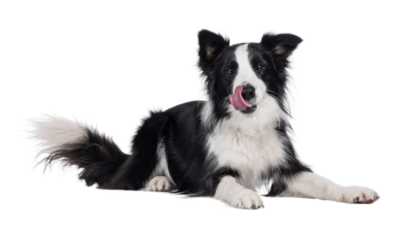A review of the OCQ(V) training qualifications was carried out in collaboration with Improve International and the BVA. Numerous sources of feedback were used to inform the review, including: BVA survey results; Improve International training feedback; feedback from BVA Specialist Divisions (PVS, BSAVA); feedback from the Veterinary Defence Society (VDS); APHA survey results, where views were sought on (a) what OVs considered to be valuable in the current courses and (b) what they considered should be changed and how; and direct communications from OVs.
Common themes presented in the feedback and certain issues were particularly dominant. Recommendations, including areas for further review, were agreed at a joint meeting with the BVA, Improve International and the APHA on 23 November 2018. These recommendations have since been approved. The agreed recommendations will be rolled out as soon as practical.
Timelines will vary depending on the extent of the work required to implement them. Some recommendations require further investigation and consultation, for example with course accreditation providers, before finalising. Implementation times will depend on other commitments – notably EU Exit work – that must take priority. The majority of this review work will not commence until after EU Exit. However, the APHA intends to take all recommendations forward as soon as possible.
Revalidation interval
Revalidation intervals are currently variable between courses. Future revalidation intervals will be standardised to four years for all courses in a staged process.
For all CA and SX qualifications completed by 30 April 2019, the original five-year revalidation interval will be applied. For those completed from 1 May 2019, the new four-year revalidation will be applied.
For all ES and EX qualifications completed by 30 June 2019, the existing five-year revalidation interval will be applied. For those completed from 1 July 2019, the new four-year revalidation will be applied. For all other qualifications, the four-year interval will be applied from 31 January 2019 once the next revalidation (or the main qualification) is completed.
Invigilation
Most respondents to the BVA and APHA surveys supported the principle to complete the online examination in the presence of an invigilator. However, concern was raised over the financial and resource implications of the requirement.
The option of permitting a more flexible invigilator choice for all OVs (to reduce the time and cost burden and assist those working in sole-charge or remote practices) is being further discussed with the course accreditation providers. The use of remote invigilation is being investigated with the course accreditation providers as an option. If implemented, this would be in addition to the existing options and not compulsory. The OV would incur an additional cost for this option.
Multiple choice question (MCQ) online
examination
All MCQs in all courses will be reviewed to ensure that the questions are accurate, test the ability to perform the relevant role and are not just a memory test. Where possible, this will be done alongside EU Exit course updates currently in progress, or soon thereafter.
Candidates will be given more feedback at the end of the MCQ online examination. They will be informed of the result and be given a list of questions they answered incorrectly. This is being developed, but implementation will be dependent on prioritisation of IT updates required for EU Exit work.
Consideration will be given to use of time-limited openbook online examination. Improve International are consulting with the course accreditation providers. If it is considered a suitable option, it will require extensive work to set up. If implemented, this is not expected to be before 2020.
The recommendation is that MCQs with multiple disciplines should be split into sections and questions selected at random from each section. This would ensure that a disproportionate number of questions on one discipline is not selected
(eg an excess of equine questions in the ungulates exam). This option is being investigated and updates will follow.
CPD requirements
The CPD requirement of 10 hours is to be completed over the standardised four-year timeframe. The option to permit the time taken for completion of scenarios to be considered as CPD has been agreed but the details are being discussed
with the course accreditation providers. The number of scenarios required is also seven, being reviewed to assist those completing multiple courses. Clarification will be added to the training website of what can be considered relevant CPD, including the use of some typical examples for OVs to access.
Course content and structure
More policy and relevant legislation will be included within the courses and policy changes will be added on an ongoing basis. The initial revalidation qualifications were similar to the main courses to provide those with grandfather rights the full training material. These have been (in the case of OCQ(V) – TT) or will be (in the case of all other courses) reviewed following completion of the grandfather rights revalidations.
Moving forward, other new content and updates will be added every revalidation cycle as a minimum (ie every four years) to ensure that new material is incorporated and OVs receive new information as well as the standard material
for revision. Revalidation updates will include topics that have been a common subject of OV query or misunderstanding or reported as a common area for errors.
APHA will review all courses to consider: how the number of courses and topics can be rationalised to meet the needs of OVs specialising in one discipline as well as those covering multiple disciplines; how to reduce the number of qualifications any OV may require and/or the time spent on revalidating; and how to reduce the content of the courses without losing quality and vital content.
The provision of species-specific courses will be considered in relation to demand for their inclusion.
The ungulate course (OCQ(V) – UX) will be addressed as a priority. A separate farm animal course will be introduced to give OVs the option of completing one or the other.
The incorporation of material from the OCQ(V) – ES (Essential Skills) into other OCQ(V) revalidations to reduce the requirement to revalidate as a stand-alone course is being investigated. In this case, the material would be flagged and could be missed out of the training if covered in another recently completed OCQ(V). However, the content would be assessed in all OCQ(V) examinations. The OCQ(V) – ES would still be maintained as a stand-alone course for initial qualification.
Case logs
Some OVs support the requirement for case logs/scenarios but many felt that case logs were unnecessary and too time consuming, particularly if only doing the work infrequently. Case logs are no longer compulsory for any qualification.
Scenarios are now used as an alternative to completing case logs and these have been well received to date.
Minimum animal numbers for OCQ(V) – TT revalidation requirements
The current minimum number of cattle to be tested between revalidations is 250. It is considered that this must remain for the initial OCQ(V) qualification but that it is unnecessarily high for revalidation. The minimum number of animals to be tested between subsequent revalidations will be reduced to 30 animals as of 31 January 2019.
You can read the full briefing note here.
Further OV briefings
22 February 2019
Update on implementation of recommendation from the 2018 OCQ(V) Review
The option of permitting a more flexible invigilator choice for OCQ(V) examinations for all OVs (to reduce the time and cost burden and assist those working in sole-charge or remote practices) has been further discussed with the course accreditation providers. Registered veterinary nurses (RVNs) are now
permitted to act as invigilators for the OCQ(V) examinations. OVs and RVNs are reminded that the Code of Professional Conduct for Veterinary Nurses (especially the five principles of practice) are applicable to invigilation.
The details for the option to permit the time taken for completion of course scenarios to be considered as CPD have now been agreed with the course accreditation providers. Each scenario completed can now contribute up to one hour of CPD for the relevant qualification.
20 February 2019
New Export Health Certificates made available in the event that the UK leaves the EU without a deal
New EU Export Health Certificates (EHCs) are now available through the EHC form finder on the UK government website. The 127 new EHCs are to enable the facilitation of UK trade to Member States of the EU and will replace the current use of Intra Trade Animal Health Certificates and commercial documentation for exports entering the EU after 11pm on 29 March 2019.
8 FEBRUARY 2019
Free Official Control Qualification (Veterinary) (OCQ(V)) training to certify the export of animal products to the EU
Given the increase in demand in the event of a no-deal scenario for EHCs for exports of animal products that must be signed by an authorised signatory or an OV, free training is on offer to encourage additional OVs to offer certification services. Training is available for the Official Control Qualification for Products Exports (OCQ(V) – PX) and, where candidates are eligible, prerequisite courses in Essential Skills (OCQ(V) – ES) and Exports General (OCQ(V) – EX).
17 JANUARY 2019
Listing of export health certification providers on the UK Government website
The APHA is launching an accessible and managed list of export health certification providers on the UK government website. The listing will support exporters in identifying organisations able to provide certification services in their region and by commodity type. The list may include local authorities if they offer a service to sign APHA-issued EHCs; it will include businesses, sole traders or local authorities
which offer a service.
Businesses which do not currently offer export certification services but who would be prepared to do so if there is demand can be also be listed. Organisations must opt in to be included.









